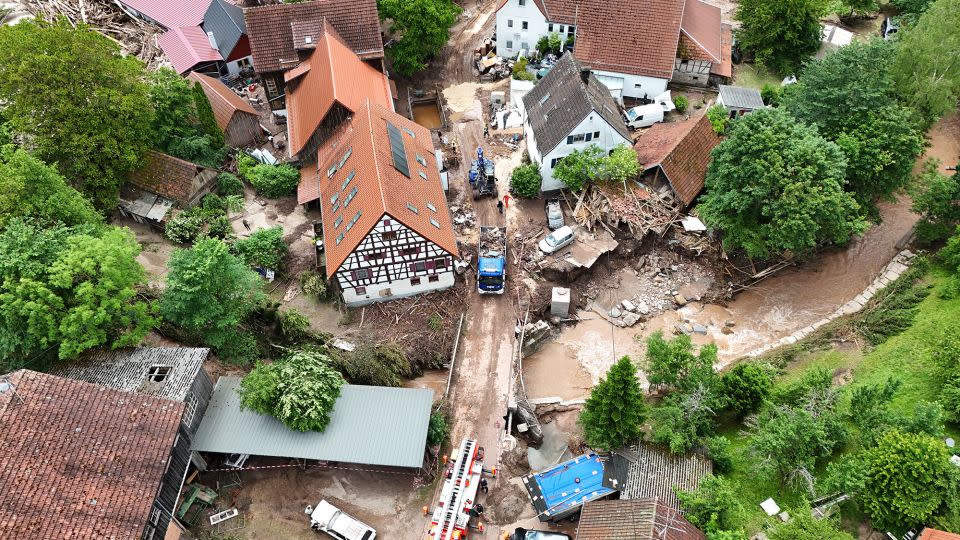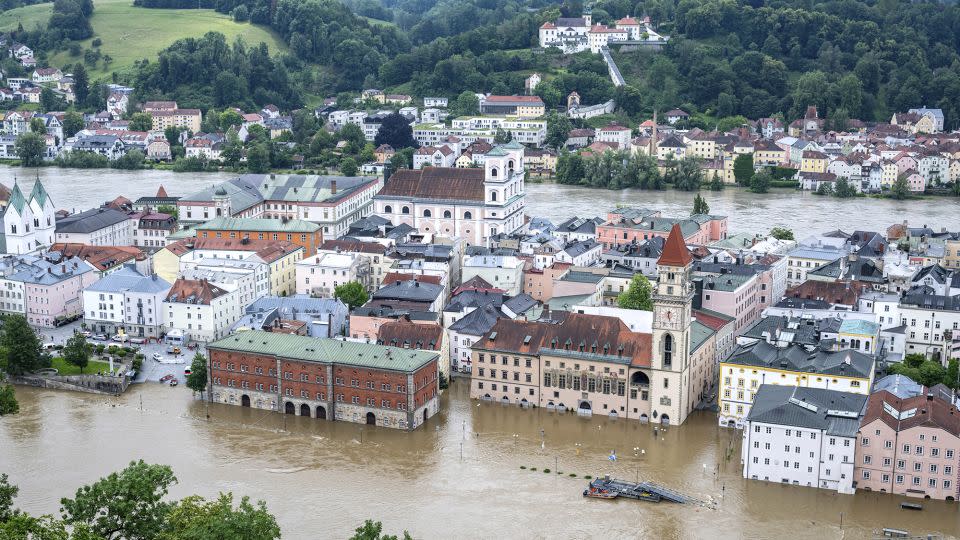Five people died and thousands were evacuated in southern Germany after heavy rainfall hit the region and caused massive flooding, prompting warnings from senior officials that the climate crisis would worsen the country’s extreme weather.
Two people and a firefighter have been confirmed dead in the state of Bavaria, Juergen Weiss of the Bavarian Fire Brigade Association told CNN.
One of the dead was washed away in her car, while the cause of death of the second citizen is not yet known. The firefighter died on Saturday when his inflatable dinghy capsized.
Meanwhile, two more people died in their basement in the state of Baden-Wuerttemberg, police said. Authorities believe they died while trying to pump water from their basement.
Six people and a 22-year-old firefighter are still missing, regional authorities say.
After heavy rainfall, German forces deployed 800 troops to the region to assist with rescue efforts. The German weather service has no longer predicted heavy rainfall.
The Danube River is the center of concern for rescue efforts, with high water levels flowing through the city of Regensburg on Tuesday morning, following an evacuation attempt the evening before.




According to the Bavarian Environment Agency, the level of the Danube had reached 9.6 meters in Passau on Tuesday morning, almost double the normal level for this time of year.
Three rivers converge in the historic university city, where authorities have halted motorized traffic and cleared underground parking garages.
More than 52,000 emergency services have been deployed in Bavaria, most of them volunteers, according to the fire brigade association. But it added that the huge flood area posed challenges for them.
Climate change is to blame
German Chancellor Olaf Scholz said during a visit to flood areas on Monday that increased flooding is an indication of climate change.
“We are very clear about the fact that this is not just an event that has been happening for centuries, but that there are already more and more cases where we are dealing with disasters, especially floods,” Scholz said.
Minister of Economic Affairs and Vice Chancellor Robert Habeck also noted on Sunday that climate change is causing more severe weather events.
“What we are seeing is that the frequency of these events is increasing significantly. There are record floods every few years, record rainfall every few years,” Habeck of the Greens told broadcaster n-tv.
Deadly floods hit Western Europe in 2021, killing at least 220 people between July 12 and 15, mainly in Germany.
Analysis of that event by climate scientists showed that the record rainfall that caused the deadly flooding was made between 1.2 and nine times more likely by human-induced climate change.
Other parts of Europe have also been hit by heavy rainfall in recent days.
Firefighters near the city of Udine in northeastern Italy said Sunday they had recovered the bodies of two young women who were swept away by strong currents in the Natisone River, which had swollen by rainfall. Fire officials say they are searching for the body of a third person.
Slovenia was hit by floods on Monday evening. According to public broadcaster RTV SLO, the municipalities of Radenci and Gornja Radgona, near the Austrian border, were the hardest hit in the country.
Similarly, floods and landslides hit the Croatian province of Krapina-Zagorje, in the north of the country on the border with Slovenia, after heavy rainfall on Monday, the public news agency HINA said.
CNN’s Barbie Nadeau and Louis Mian contributed to this report.
For more CNN news and newsletters, create an account at CNN.com







